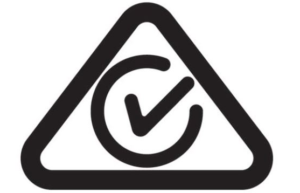Revealed: How cost-of-living pressures are pushing Australians toward unsafe products
Statements
In today’s economic climate, Australians are making a significant trade-off between potentially unsafe products and affordability.
New research from Standards Australia reveals that an overwhelming 82% of Australians know that overseas and discount retailers may sell products that don’t meet our safety standards.
Additionally, whilst 68% of consumers have had concerns about the safety of products they purchased, they are buying them anyway.
From electronics and toys to e-scooters and clothing, non-compliant or wrongly used products can harbour potential hazards that may cause injury or worse. These hazards include multiple Lithium-Ion battery fires, children’s clothing catching fire and button batteries coming loose from toys and being ingested.
The research findings paint a clear picture as to why we’re making precarious purchases despite knowing the risks:
- Over 83% of those surveyed name price and the variety of products as the main reasons they buy from overseas retailers
- Almost two-thirds (65%) of all surveyed and 78% of 25-34 year-olds say cost-of-living pressures have made them more inclined to buy cheaper, overseas options
- According to the ABS1, more than half of first home buyers are aged 18-34 and have the highest rates of first-time parenthood, as well as being the leading purchases of products online, especially fashion, technology and home goods2
- Nearly half (48.6%) of Australian consumers have delayed or avoided purchasing from an overseas retailer due to concerns about safety
Rod Balding, CEO of Standards Australia says that whilst online purchasing continues to grow rapidly, and with more Australians shopping from low-cost online platforms, it’s never been more important to understand the safety and standards surrounding these purchases.
“We understand that cost-of- living pressures are influencing how and where Australians spend their money.”
However, this trade-off is concerning so we are encouraging Australians to think twice, do their safety research, and, if they do purchase from overseas or cheaper options, be extra vigilant with product use,” says Rod.
“Standards exist to help keep consumers safe by establishing minimum requirements that products should meet. While we hope all manufacturers and retailers adhere to these standards, unfortunately, there are cases where some fall short.”
“What's important is that all sellers, regardless of where they're based, should have a duty of care. We’re committed to helping consumers make safer, smarter choices supported by trusted standards that uphold safety at every step,” says Rod.
Consumer safety advice:
- Use your common sense – there's a big difference between buying a wooden spoon versus buying Christmas lights or electrical appliances. Higher-risk products deserve more scrutiny.
- Take a few minutes to do your research. Check reviews, look for information about standards compliance, and when the product arrives, inspect it carefully. If something seems off – like a loose battery compartment – that's probably a good sign it's faulty or risky.
- For electrical products, look for regulatory compliance marks like the RCM (Regulatory Compliance Mark - a tick in a triangle – see below). For children's products, be particularly vigilant about small parts or potential hazards.

- Using a product safely is just as important. Many recent e-scooter fires have been linked to modified batteries or using incorrect chargers.
Research methodology and findings
An online survey of N=1014 Australians aged 18+ conducted by The Strategies and sourced from the Australian Dynata consumer insights panel between October 3rd – 6th, 2025.
Key Findings
- 68% of Australians who have purchased from an overseas discount retailer have concerns about the safety of the product compared to a similar one bought in Australia
- Women are slightly more concerned (71%) on average than men (63%)
- Over 65s are almost three times more concerned than 18–24 year-olds
- 82% of those surveyed are aware that cheaper retailers may sell products not up Australia’s safety standards
- Younger Australians are more keenly aware of the potential risks with 89% of 18-24 year-olds understanding this, compared to 69% of those over 65
- Over 83% of respondents list price and variety/not being available in Australia as the main reasons they buy from overseas retailers
- Over 90% of men name price as their number one motivator
- Young Australians are more likely to be drawn to variety whilst middle aged consumers are slightly more motivated by price
- Nearly half (48.6%) of Australian consumers have delayed or avoided purchasing from an overseas retailer due to concerns about safety
- Women are more cautious (53%) than men (44%)
- Younger Australians are on average less concerned than older Australians
- Almost two thirds (65%) of Australian say cost-of-living pressures have made them more inclined to buy from overseas discount retailers
- Women are feeling these pressure more (69%) than men (60%)
- Younger Australians are feeling the pinch more, with 78% of 25-34 year-olds saying cost-of-living has made them likely to shop with these retailers
Sources

In today’s economic climate, Australians are making a significant trade-off between potentially unsafe products and affordability.
New research from Standards Australia reveals that an overwhelming 82% of Australians know that overseas and discount retailers may sell products that don’t meet our safety standards.
Additionally, whilst 68% of consumers have had concerns about the safety of products they purchased, they are buying them anyway.
From electronics and toys to e-scooters and clothing, non-compliant or wrongly used products can harbour potential hazards that may cause injury or worse. These hazards include multiple Lithium-Ion battery fires, children’s clothing catching fire and button batteries coming loose from toys and being ingested.
The research findings paint a clear picture as to why we’re making precarious purchases despite knowing the risks:
- Over 83% of those surveyed name price and the variety of products as the main reasons they buy from overseas retailers
- Almost two-thirds (65%) of all surveyed and 78% of 25-34 year-olds say cost-of-living pressures have made them more inclined to buy cheaper, overseas options
- According to the ABS1, more than half of first home buyers are aged 18-34 and have the highest rates of first-time parenthood, as well as being the leading purchases of products online, especially fashion, technology and home goods2
- Nearly half (48.6%) of Australian consumers have delayed or avoided purchasing from an overseas retailer due to concerns about safety
Rod Balding, CEO of Standards Australia says that whilst online purchasing continues to grow rapidly, and with more Australians shopping from low-cost online platforms, it’s never been more important to understand the safety and standards surrounding these purchases.
“We understand that cost-of- living pressures are influencing how and where Australians spend their money.”
However, this trade-off is concerning so we are encouraging Australians to think twice, do their safety research, and, if they do purchase from overseas or cheaper options, be extra vigilant with product use,” says Rod.
“Standards exist to help keep consumers safe by establishing minimum requirements that products should meet. While we hope all manufacturers and retailers adhere to these standards, unfortunately, there are cases where some fall short.”
“What's important is that all sellers, regardless of where they're based, should have a duty of care. We’re committed to helping consumers make safer, smarter choices supported by trusted standards that uphold safety at every step,” says Rod.
Consumer safety advice:
- Use your common sense – there's a big difference between buying a wooden spoon versus buying Christmas lights or electrical appliances. Higher-risk products deserve more scrutiny.
- Take a few minutes to do your research. Check reviews, look for information about standards compliance, and when the product arrives, inspect it carefully. If something seems off – like a loose battery compartment – that's probably a good sign it's faulty or risky.
- For electrical products, look for regulatory compliance marks like the RCM (Regulatory Compliance Mark - a tick in a triangle – see below). For children's products, be particularly vigilant about small parts or potential hazards.

- Using a product safely is just as important. Many recent e-scooter fires have been linked to modified batteries or using incorrect chargers.
Research methodology and findings
An online survey of N=1014 Australians aged 18+ conducted by The Strategies and sourced from the Australian Dynata consumer insights panel between October 3rd – 6th, 2025.
Key Findings
- 68% of Australians who have purchased from an overseas discount retailer have concerns about the safety of the product compared to a similar one bought in Australia
- Women are slightly more concerned (71%) on average than men (63%)
- Over 65s are almost three times more concerned than 18–24 year-olds
- 82% of those surveyed are aware that cheaper retailers may sell products not up Australia’s safety standards
- Younger Australians are more keenly aware of the potential risks with 89% of 18-24 year-olds understanding this, compared to 69% of those over 65
- Over 83% of respondents list price and variety/not being available in Australia as the main reasons they buy from overseas retailers
- Over 90% of men name price as their number one motivator
- Young Australians are more likely to be drawn to variety whilst middle aged consumers are slightly more motivated by price
- Nearly half (48.6%) of Australian consumers have delayed or avoided purchasing from an overseas retailer due to concerns about safety
- Women are more cautious (53%) than men (44%)
- Younger Australians are on average less concerned than older Australians
- Almost two thirds (65%) of Australian say cost-of-living pressures have made them more inclined to buy from overseas discount retailers
- Women are feeling these pressure more (69%) than men (60%)
- Younger Australians are feeling the pinch more, with 78% of 25-34 year-olds saying cost-of-living has made them likely to shop with these retailers
Sources

Email:

Email:

